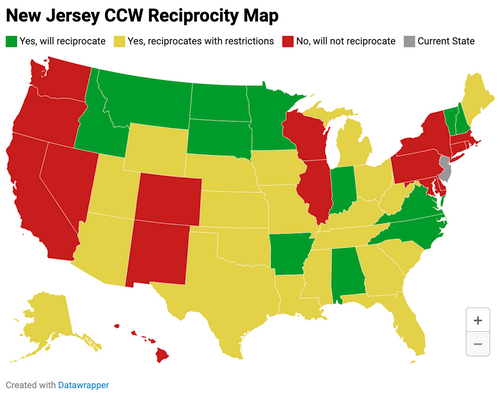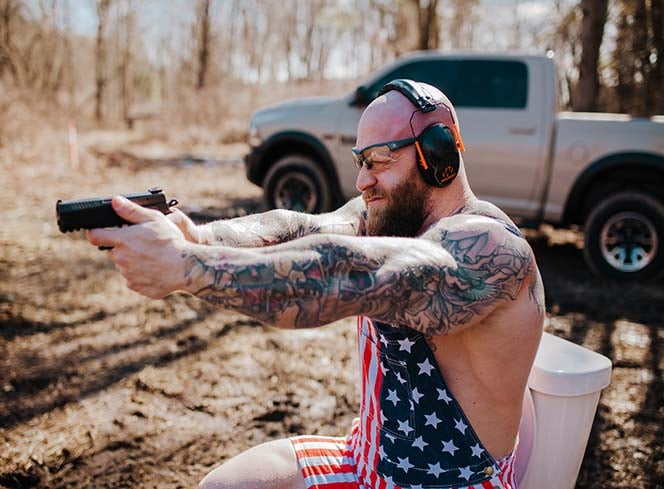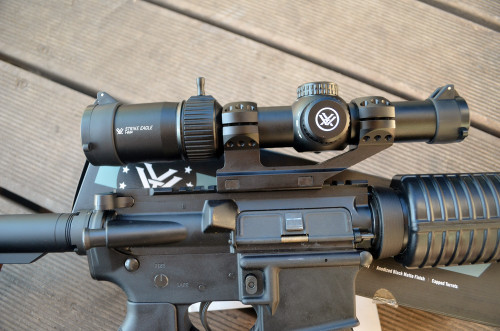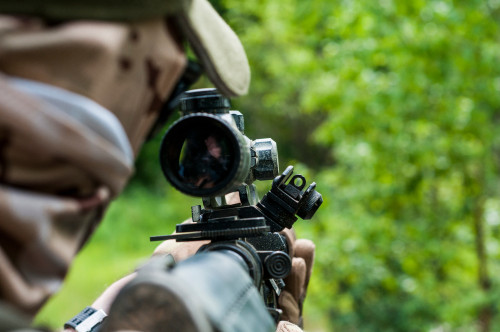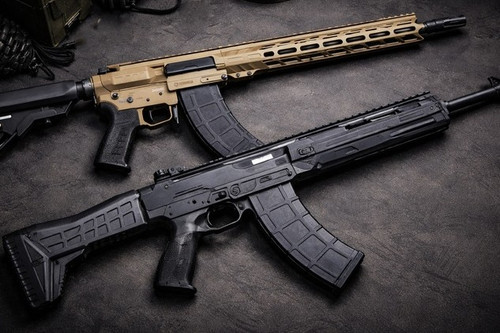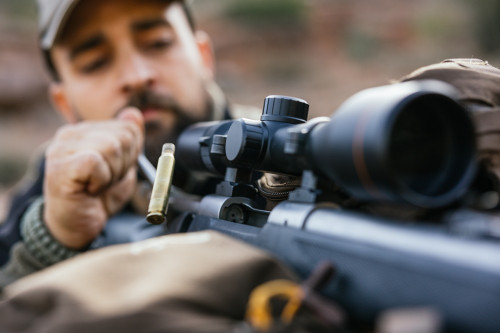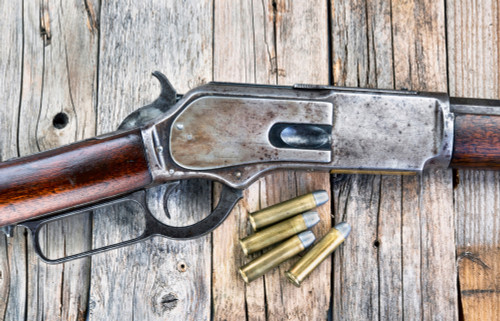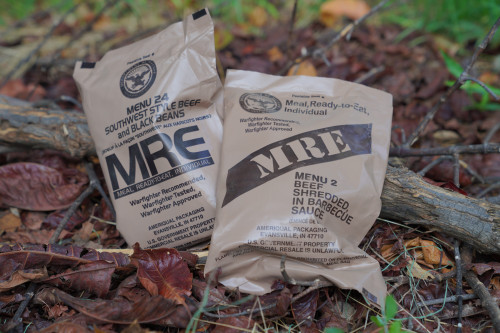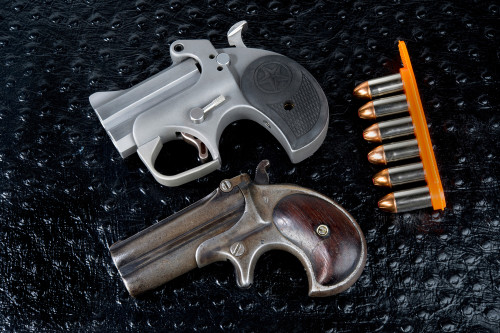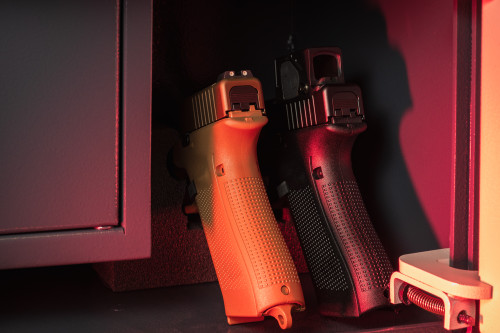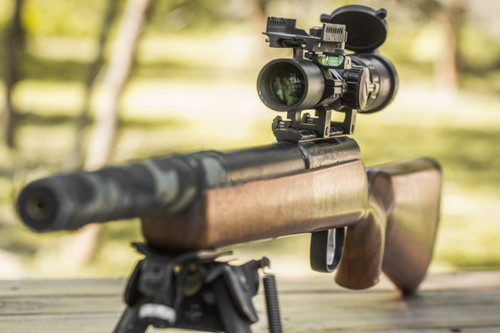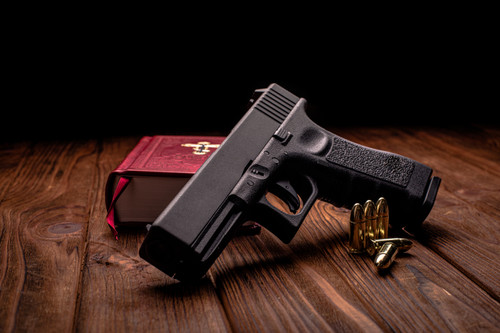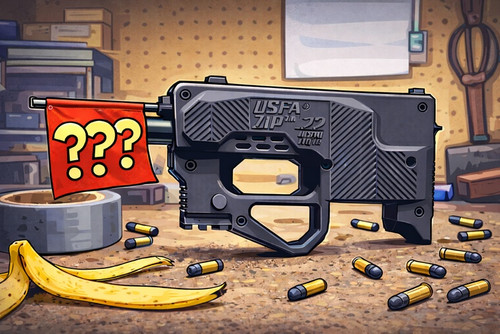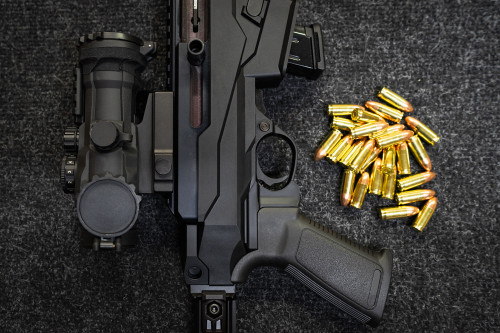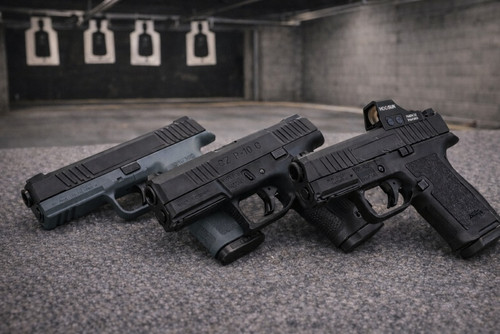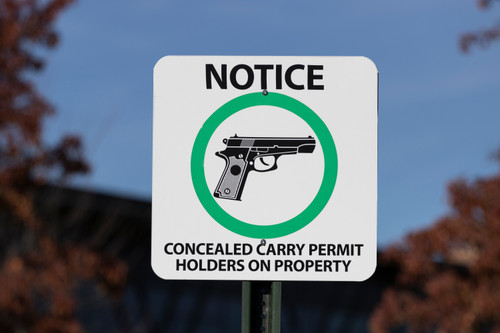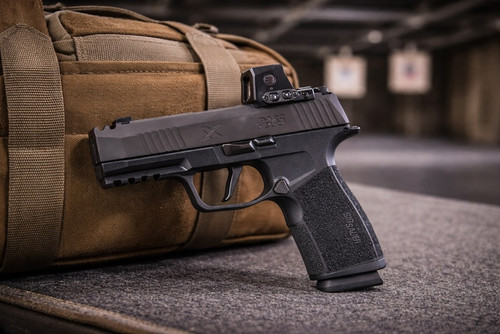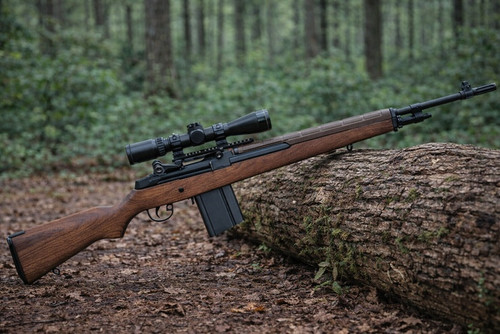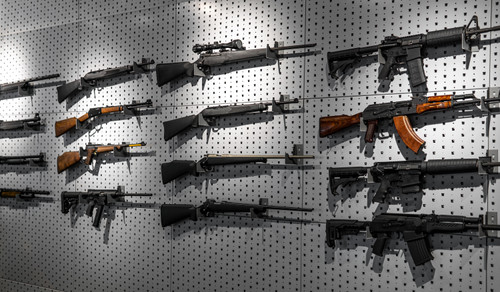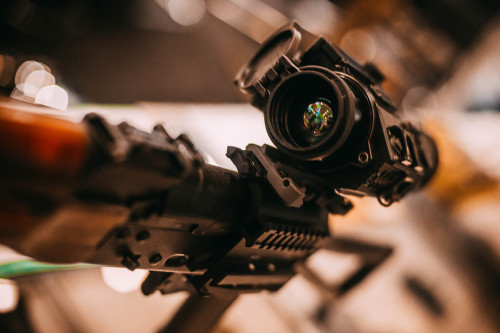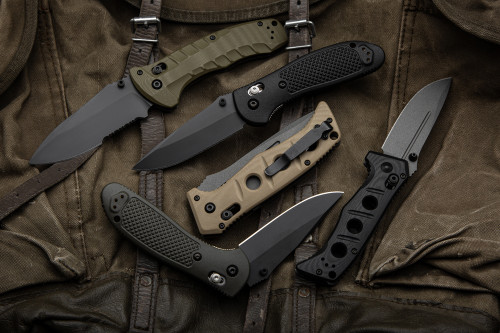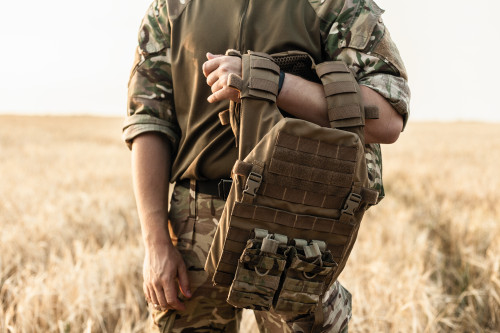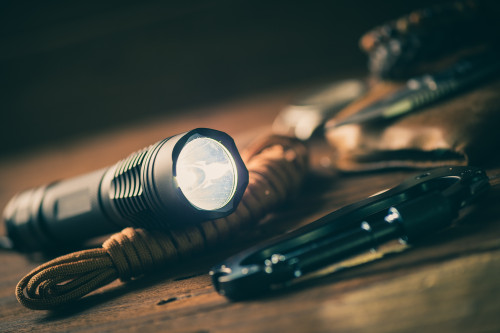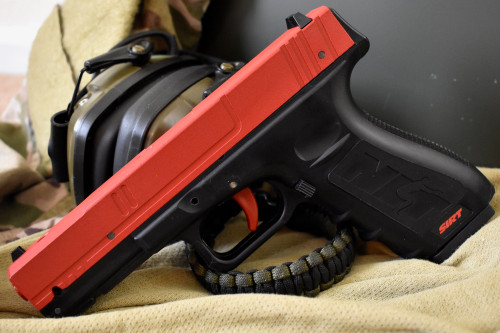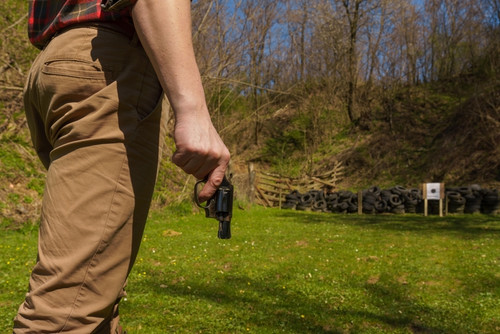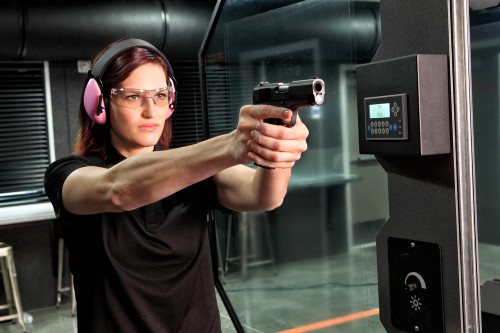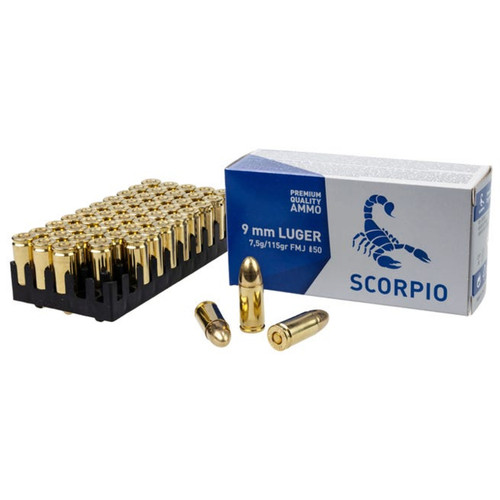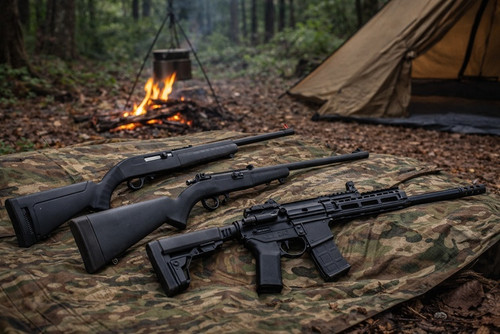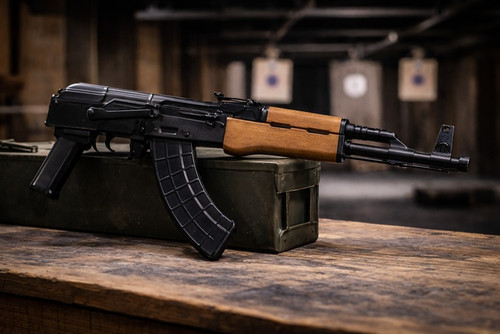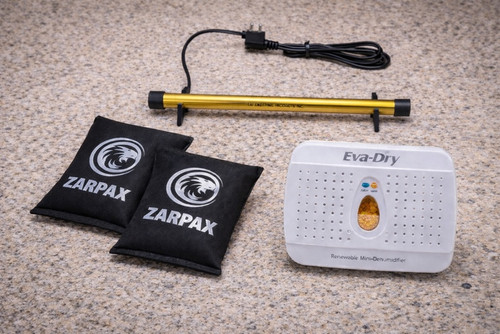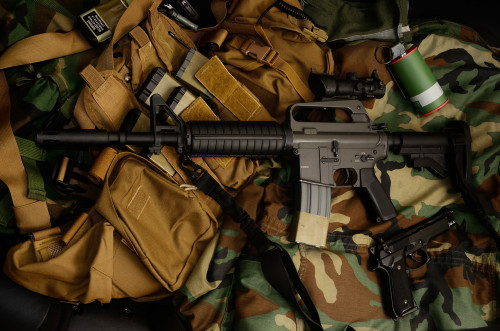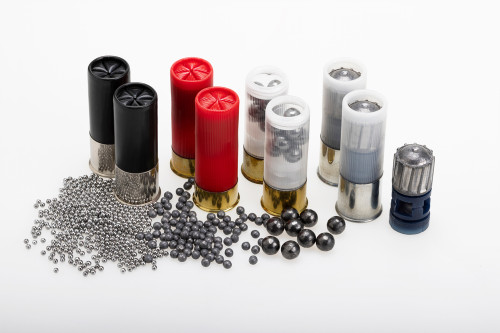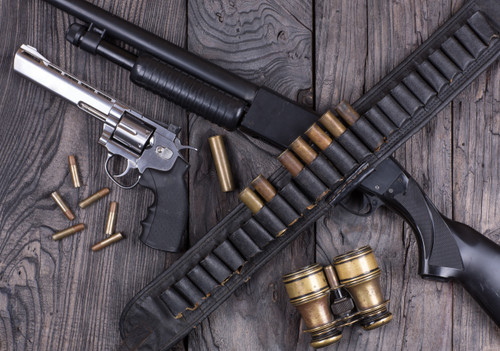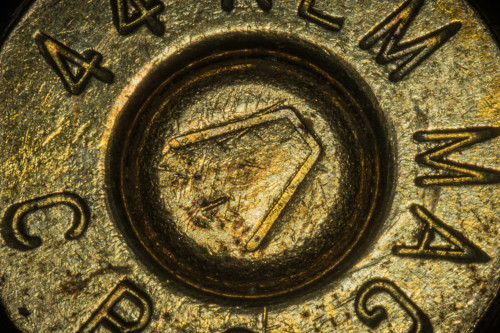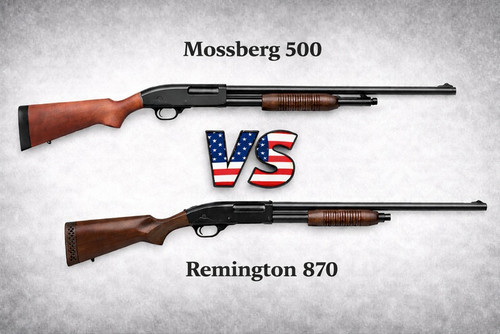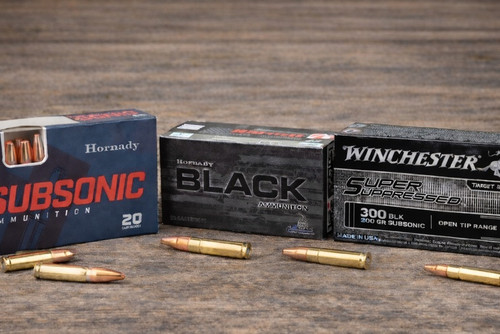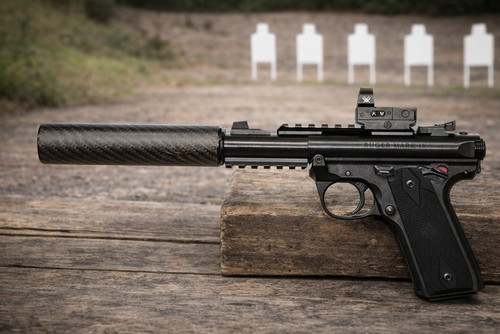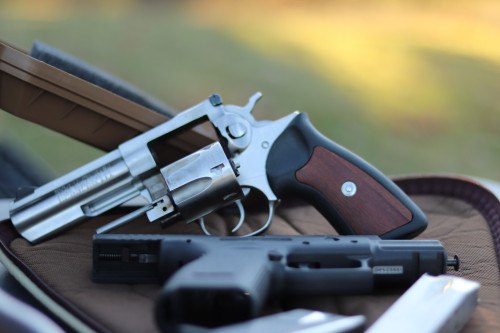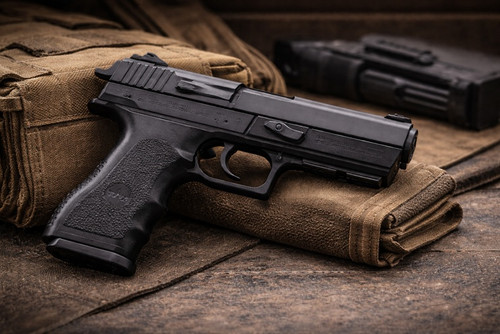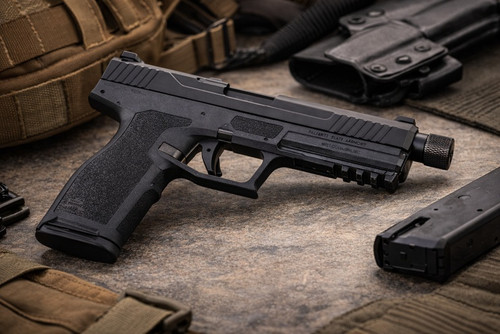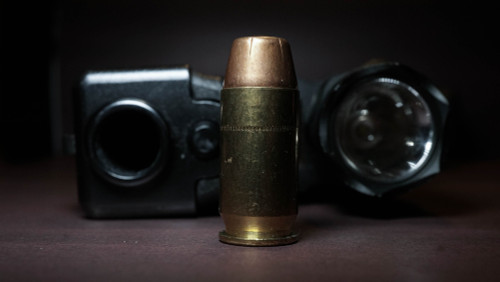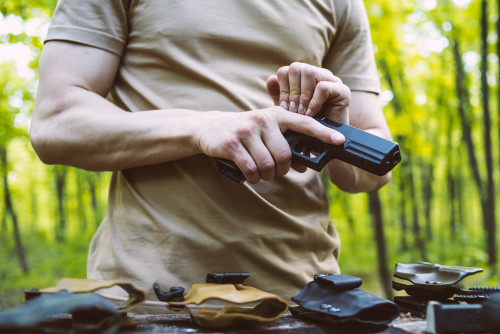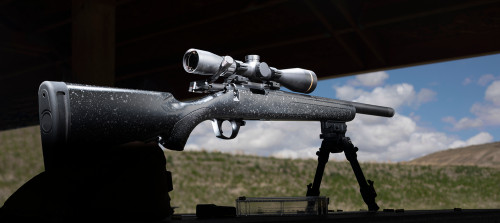Keeping with east coast urban tradition, New Jersey has very restrictive gun laws and a complicated concealed carry permitting process. Pay careful attention to legal and administrative requirements as the state is looking for any excuse possible to not to give you a license. Still, with patience and persistence, you can complete the process.
In this guide, we’ll cover everything you need to know about concealed carry in New Jersey including reciprocity with other states, how to get a license, and specific rules regarding the purchase, carry, and use of a firearm in the “Garden State.”
Legal Disclaimer
This article doesn’t constitute legal advice. We’re communicating informally here to make this information easy to grasp and to avoid getting lost in legal jargon. With that said, it’s the legal jargon that may decide your fate in court. Be prepared.
We’ll be as accurate as we can, but for clarification, cross-check the information here with actual laws, which we’ve linked throughout the article. If you have additional questions or concerns, we recommend consulting with an attorney experienced in the self-defense laws of New Jersey.
1. Quick Stats
- Number of other state permits honored in New Jersey: 0
- Number of states that honor New Jersey permits: 33
- Percentage of people licensed for concealed carry in New Jersey: 0.01%
- Number of issued licenses in New Jersey: 1000
- Minimum age to carry a concealed firearm in New Jersey: 21
- New Jersey concealed carry license validity: 2 years
2. New Jersey Concealed Carry Overview
This section provides an overview of concealed carry laws in New Jersey.
Carry Type
New Jersey is not a constitutional carry or permitless carry state. To legally carry a concealed firearm in the state, you must qualify for and obtain a New Jersey Permit to Carry a Handgun (PCH). New Jersey does not recognize concealed carry permits from other states.
Open carry is prohibited in New Jersey.
NJ Rev Stat 2C: 39-5 and 58-4.5
Permit To Carry a Handgun
New Jersey is a shall-issue state, which means anyone who meets the qualifications can technically obtain a PCH. You don’t need to provide proof to the government that you have a particular need for a concealed firearm. PCHs are processed by local law enforcement and issued by the New Jersey State Police (NJSP).
However, New Jersey only recently became a shall-issue state due to a 2022 Supreme Court ruling that declared restrictive concealed carry policies unconstitutional. As a result, in practice, obtaining a PCH is still difficult as the state adjusts to this new legal reality. Expect the process to be long, tedious, and to change over time as legal challenges persist.
Your PCH is not linked to your driver’s license, so law enforcement will not immediately know your concealed carry status during a traffic stop. However, they have access to the concealed carry database.
New Jersey issues PCHs to non-residents using the same process as residents. Detailed information about obtaining a PCH can be found in section seven of this article.
Preemption
New Jersey retains preemption rights over all firearm laws throughout the state. No local regulations supersede state law.
Red Flag Law
New Jersey has a red flag law, also called an extreme risk protection order (ERPO) or a firearm removal order. The ERPO prevents the subject of the order from buying, carrying, or possessing firearms if the subject is deemed an immediate danger to themselves or others.
ERPOs can be initiated via direct court petition by a family member, household member, or law enforcement officer. For anyone else, they must contact law enforcement.
NJ Extreme Risk Protection Order Act of 2018
Other Weapons
The New Jersey PCH exclusively regulates the concealed carry of firearms and does not pertain to other self-defense tools or dangerous weapons.
Non-lethal tools such as stun guns, tasers, and pocket-sized chemical sprays (e.g., pepper spray) are legal to carry for anyone 18 years of age or older and otherwise legally able to possess one. Stun guns and tasers cannot be carried in educational institutions.
Magazine Limits
New Jersey law restricts the carry of large capacity magazines, which are defined as any device that can hold more than 10 rounds that can be fed directly into a semi-automatic firearm. So, 10-round magazines are the maximum (but you can always carry extra mags).
Ammunition Restrictions
Buying or possessing armor-piercing pistol ammunition is illegal in New Jersey (as it is almost everywhere) but, in the state’s infinite wisdom, public carry of hollow-point rounds is also illegal — which is insane (check out this article to understand why). However, you can legally purchase hollow-point ammo for home defense.
While you would have to make an effort to find armor-piercing rounds, hollow-point rounds are extremely common. Be sure to check the ammo in your magazine before you go out in public with any concealed weapon.
3. New Jersey Concealed Carry Reciprocity
Each state has different rules and licensing procedures for concealed carry. However, some states either fully or partially recognize the concealed carry permits of other states. Here’s how New Jersey fits into the national concealed carry picture:
State Permits Honored by New Jersey
New Jersey does not honor permits from any other state. To legally carry a concealed handgun in New Jersey, you must possess a New Jersey PCH. No exceptions.
States Fully Honoring New Jersey PCH
The states below fully honor the New Jersey PCH, which means New Jersey PCH holders can carry a concealed firearm in that state without seeking any additional approval. However, you are still subject to the gun laws of any state you visit.
- Alabama
- Arkansas
- Idaho
- Indiana
- Minnesota
- Montana
- New Hampshire
- North Carolina
- North Dakota
- South Dakota
- Vermont
- Virginia
States Partially Honoring New Jersey PCH
The states below honor the New Jersey PCH, but with some restrictions that vary by state. Be sure to check the conditions of the state you’re traveling to.
- Alaska
- Arizona
- Florida
- Georgia
- Iowa
- Kansas
- Kentucky
- Louisiana
- Maine
- Michigan
- Mississippi
- Missouri
- Nebraska
- Ohio
- Oklahoma
- South Carolina
- Tennessee
- Texas
- Utah
- West Virginia
- Wyoming
States Not Honoring New Jersey PCH
These states do not honor the New Jersey PCH:
- California
- Colorado
- Connecticut
- Delaware
- District of Columbia
- Hawaii
- Illinois
- Maryland
- Massachusetts
- Nevada
- New Mexico
- New York
- Oregon
- Pennsylvania
- Puerto Rico
- Rhode Island
- Washington
- Wisconsin
4. New Jersey Rules for Buying a Gun
Here is an overview of the rules related to buying a handgun in New Jersey.
Purchase Permit
A handgun purchase permit (HPP) is required to buy a handgun in New Jersey. The HPP is valid for 90 days, and can only be used to buy a single handgun. To qualify for an HPP, you must complete an application, consent to a mental health check, be fingerprinted, and provide two references basically stating you are not a menace to society.
The HPP is processed by your local law enforcement office, which might be a local police station or an NJSP office, depending on where you live. Rules and regulations vary depending on your area, so be sure to check with relevant law enforcement for details. Contact information can be found here.
You will not receive a physical permit. The HPP is electronic and will be accessed by the Federal Firearms Licensee (FFL) dealer facilitating your purchase.
While the HPP application must be completed online, your first step is to contact your local law enforcement office to obtain their Originating Agency Identifier (ORI) code, which will be required to complete the online application process. If you get this wrong, you have to start over — and no refunds!
If all of this seems overly tedious and complicated, that’s probably by design.
Background Checks
Criminal history records checks are required to buy a gun, including at gun shows and sales between private parties. The process is completed by the FFL facilitating the transaction using the National Instant Criminal Background Check System (NICS).
All handgun sales must be facilitated by an FFL. Exceptions to this rule include transferring guns between family members in the case of death and inheritance.
Waiting Period
New Jersey mandates at least a 7-day waiting period from the time you submit your application for your HPP to the time you can pick up your handgun. But this is usually irrelevant because it can take 30 days or longer to complete the HPP process.
Registration
New Jersey does not mandate handgun registration but maintains a de facto registry through the HPP process and FFL recordkeeping. FFLs must provide the NJSP with HPP data, allowing the state to maintain detailed accountability of all handgun transfers in the state.
If you bring guns to New Jersey as a new resident, and those guns were legally purchased in another state, you do not need to register the guns in New Jersey. You can voluntarily register your guns with the state police, but you are not obligated to do so.
Minimum Age for Purchase
You must be at least 21 years old to legally purchase a handgun from a registered dealer. As all legal transfers must be facilitated by an FFL, this effectively means the minimum purchase age is established by federal law.
5. New Jersey Rules for Carrying a Gun
This is an overview of rules and laws related to carrying a handgun in New Jersey.
Basic Guidelines
Carrying a concealed handgun in New Jersey requires a PCH. You must have your license, a photo ID, and proof of liability insurance on you at all times when carrying concealed. If you are carrying concealed and don’t have the permit on you, you’re committing a crime.
No permit is required to carry a firearm on your private property or at a business you own.
In this context, to “carry” means having the gun “on or about your person,” which means carrying it in a holster or having it readily accessible in something like a briefcase or backpack. This also includes having the gun accessible in your vehicle. If the gun is unloaded and locked in the trunk, you’re not “carrying” it, you’re just “possessing” or “transporting” it.
Prohibited Carry Locations
While the PCH broadly gives you the right to carry a concealed handgun, some specific locations remain off-limits. Here are a few key locations in New Jersey where concealed carry of a handgun is prohibited, even with a PCH:
- Educational institutions including schools, colleges, universities, and daycares
- Healthcare facilities including hospitals, nursing homes, long-term care, and homeless shelters
- Correctional facilities including prisons, jails, halfway houses, and juvenile justice centers
- Entertainment facilities including stadiums, arenas, amusement parks, casinos, racetracks, zoos, libraries, and museums
- Outdoor areas including state parks, state forests, national forests, and wildlife management areas
- Recreational facilities including parks, beaches, and playgrounds
- State facilities including administrative buildings, courthouses, and polling places
- Bars, restaurants that serve alcohol, and cannabis retailers
- Airports and transportation hubs
- Demonstrations, protests, and licensed public gatherings
- Power plants
- Any place prohibited by federal law
What’s left, you ask? Good question. Basically public streets.
Duty To Inform Police
If you encounter law enforcement, you have a duty to inform police you’re carrying a concealed weapon on your person or in your vehicle. If you’re carrying a firearm, you must also present your PCH to the law enforcement officer facilitating the encounter.
Carrying in Vehicle
You must have a PCH to legally carry a loaded firearm inside a vehicle. If you don’t have a PCH and need to transport a gun in your car, the gun must be unloaded, locked in a case, and kept in the trunk or otherwise inaccessible to the passenger compartment (i.e., in the trunk). The center console and glove box are not sufficient to meet this requirement.
Ammunition must also be in a separate container and locked in the trunk. Magazines can remain loaded but must be stored separately from the gun.
Carrying While Intoxicated
You cannot carry a handgun while consuming alcohol, cannabis, or other drugs — nor should you.
Liability Insurance
Anyone who carries a gun in public must maintain liability insurance coverage insuring the carrier in cases of property damage, bodily injury, or death due to the use of a firearm. The coverage must be for at least $300,000, and you must carry proof of insurance any time you are carrying your gun in public.
Minimum Age To Carry
You must be at least 21 years old to carry a handgun in New Jersey.
6. New Jersey Rules for Using a Gun
This is an overview of rules and laws related to using a firearm in New Jersey.
Use of Deadly Force
In New Jersey, deadly force is defined as a physical force that “creates a substantial risk of causing death or serious bodily harm.” Note that nobody needs to die to meet this definition. Shooting someone — or even just at someone — is always considered deadly force whether anyone actually dies or not.
You can only use deadly force against another person if you reasonably believe that such force is necessary to protect you or someone else against death or serious bodily harm.
However, there are some caveats. You can’t use deadly force if:
- You are the instigator. If you start the fight and it ends with you shooting someone, you’re in trouble.
- You can retreat. If you could have reasonably and safely retreated but chose to stand your ground and use deadly force, you’re in trouble.
- You can submit to attacker demands. If someone demands your wallet, and you choose to shoot them instead, you’re in trouble. Welcome to New Jersey.
Additional factors such as whether the attacker was armed, your relative physical strength, your injuries sustained, and previous encounters with the assailant will all be considered in the judicial process.
Remember, even if you’re forced to make a split-second decision, you’ll be held accountable for that choice. The keys to legal and effective self-defense are skill development, scenario planning, and comprehensive knowledge of the law — and avoiding bad situations entirely.
Training is the only antidote we have against the mind-bending stress and insanity of gun combat. The better trained you are, the more likely you will be to make the best possible decision in the worst moment of your life.
Stand Your Ground
New Jersey is not a stand-your-ground state. Unlike many states, New Jersey law explicitly states that you have a duty to retreat rather than use deadly force. If you use deadly force and a jury decides you could have safely retreated, you’re going to jail.
Castle Doctrine
New Jersey law includes a castle doctrine, which means you have no duty to retreat when you’re in your dwelling (e.g., home, apartment, hotel room, etc.), and you can legally use force — including deadly force — against an intruder.
However, there are still caveats. To justify deadly force the intruder must threaten deadly force, or be trying to commit arson, burglary, robbery, or other criminal theft. Plus, it must be clear that using non-deadly force would have been too dangerous for the defender.
In other words, you must take every possible precaution to not excessively injure the psychopathic goblin who chose to break into your house in the middle of the night.
NOTE: Castle doctrine doesn’t apply if the “intruder” has a legal right to be at the location. In other words, you can’t tell your significant other to get lost, and then shoot them when they come home. This also protects law enforcement officers, firefighters, and emergency responders performing official duties in or around a dwelling.
Defense of Property
You’re not justified in using deadly force to defend property (i.e., your stuff). If someone is stealing your stuff (and you’re not in danger) and you shoot them, you’re going to jail.
Brandishing
New Jersey law states that you cannot unjustly display a handgun, which means you cannot display a handgun in public for any reason other than self-defense.
The point is, your handgun is not a tool of coercion or crowd control or to express your righteous indignation. You’re not a police officer. The only legal reason to draw your gun in public is to neutralize a dangerous goblin threatening you or others. That’s it — case closed.
A Note on Using Your Gun
Remember, the use of deadly force is the central issue of concealed carry. Everything else we cover here could result in fines, misdemeanors, or maybe felonies in rare cases — not life-ending stakes.
Deadly force is an entirely different level of seriousness. What you do in a split second could be the difference between going home to see your family and spending a few decades in prison — especially in a place like New Jersey. There are almost no cases where deadly force is legally authorized. Keep this in mind and prepare accordingly.
It might seem cool to carry a gun, but never forget that pulling the trigger is serious business with the highest possible stakes. If you can avoid it, you must.
7. How To Get a New Jersey PCH
The following is a step-by-step guide for obtaining a PCH in New Jersey. While the state has a centralized system managed by the NJSP, applications are processed and facilitated by local law enforcement. Requirements may vary based on where you live.
Step 1: Determine Eligibility
First, determine if you’re eligible to obtain a CHL. To be eligible, you must:
- Be at least 21 years old
- Not have an outstanding arrest warrant
- Not be subject to a restraining order
- Not have been admitted to a mental institution
- Not otherwise be prohibited from carrying a gun by federal law
Step 2: Complete Firearms Training
Next, you will need to complete a handgun training course, which must include state-mandated use-of-force training and a practical range exam.
Use of force training includes education on the following topics:
- Reasonable belief
- Imminent danger
- Force options
- Self-defense
- Defense of others
- Defense of premises and property
- Use of force to prevent a crime
- Actions after firearm use
- Reporting deadly force use
The state uses the Civilian Carry Assessment and Range Evaluation (CCARE) shooting protocol, which includes the following metrics:
- Firing 50 rounds at an FBI-type Q target on a 15-yard range
- Must hit at least 40 shots within the target silhouette
- Shoot from 3, 5, 7, 10, and 15 yards
- Demonstrate safe handling, including loading, unloading, drawing, and re-holstering
This training needs to be completed within the previous two years of your PCH application date. Be sure to get a completion certificate as this will be required in your PCH application package. Further details about training can be found here.
Step 3: Obtain References
You need to get four written references testifying to your good character. Each reference must have known you for at least three years, and they cannot be related to you by blood or by law. Basically, each reference should testify that you haven’t said or done anything that would indicate a desire to carry a gun for any reason other than self-defense.
Step 4: Contact Local Law Enforcement
The New Jersey PCH is processed by the law enforcement organization responsible for your area (NJSP or local police). Each department has slightly different requirements, so you must contact local law enforcement for further details. Find relevant contact info on this list.
For non-residents, contact the NJSP office closest to where you live.
You must obtain the correct ORI number, which will be used for routing your PCH application. If your ORI number is for the wrong jurisdiction, you’ll have to start the entire application process over and your fee is nonrefundable.
Step 5: Get Fingerprinted
You need to submit a full set of fingerprints to the State Bureau of Identification (SBI) before you apply for your PCH. Your local law enforcement office will provide details about where and how to schedule a fingerprinting appointment.
New Jersey uses a company called IdentoGO for biometrics, so you will pay them directly and they will submit your prints to the NJSP.
When your prints are submitted, you will receive an SBI number, which is a unique tracking code assigned to all fingerprints collected by the state.
Step 6: Complete Application
Now, you’re ready to submit your application using the state-wide system managed by the NJSP. To complete the application, you’ll need to upload the following:
- Social security number
- Driver’s license number
- ORI number
- SBI number
- Firearms training record (including instructor name and qualification date)
- Passport-style photo
- Mental health records check consent form
- Information about the gun you plan to carry
Make sure to double check everything before you submit. The fee is $200, usually paid by money order, though this may vary depending on your jurisdiction.
Step 7: Wait for Notification
The state has up to 120 days to approve or deny your application. Any status updates will be handled by the processing law enforcement office. Don’t try to contact the NJSP for status updates. If approved, your PCH is valid for two years.
If your application is denied, you will be given a written explanation, and you can file an appeal to the Superior Court. You must file your appeal within 30 days of denial, and your case will be heard within 60 days.
8. New Jersey PCH Management
Here’s how to manage your PCH once it’s active:
Renewal
You are responsible for renewing your PCH. The renewal process is almost identical to the initial application process, including requiring an updated training certificate, a new photograph, and any updates to your personal information.
You can begin the renewal process up to four months before your current PCH expires, and the fee is $200. Contact your issuing law enforcement office for more details.
Name & Address Change
This varies by jurisdiction, so contact your issuing law enforcement office for more details.
Lost or Stolen Permit
Again, contact your issuing law enforcement office.
9. New Jersey Weapons Laws FAQ
Here are some common questions regarding New Jersey weapons laws and concealed carry:
Do I need a permit to buy a handgun?
Yes. Before you can legally buy a handgun, you must qualify for and obtain an HPP. The FFL facilitating your transaction will require this permit before they will sell you a handgun.
Do I need to register my gun?
No. However, all gun sales are reported to the NJSP, effectively registering the gun.
Does a PCH exempt you from a background check?
No. Background checks are required for all handgun sales.
Is there a waiting period for handgun sales?
Yes. New Jersey mandates a 7-day waiting period for handgun purchases.
Can I keep a loaded handgun in my car?
Yes, with a PCH. Without a permit, the gun must be unloaded, locked in a case, stored separately from ammo, and inaccessible to vehicle passengers.
What’s the minimum age to carry a handgun?
You must be at least 21 years old to get a PCH and carry a concealed handgun.
Can I open carry?
No. Open carry is illegal in New Jersey.
Can I legally carry a knife?
Yes, any legal knife can be carried openly or concealed. Illegal knives include gravity knives (e.g., butterfly knives), switchblades, daggers, dirks, or stilettos. In other words, folding knives and hunting knives are generally acceptable.
Can I carry a concealed handgun while hunting?
Yes. There are no laws or administrative rules that prevent PCH holders from carrying concealed while hunting unless you are in one of the prohibited areas described above. However, you can only use the handgun for self-defense, not for hunting.
Pro Armory: Your Concealed Carry Equipment Supplier
As responsible concealed carriers, it’s critical that we remain legally compliant to protect ourselves and others should disaster strike. At Pro Armory, we believe concealed carry is your right, but only if you do so as a thoughtful, responsible citizen.
Stay prepared with the best tools to help you exercise your right to bear arms and defend yourself. We offer ammo for handguns, rifles, and shotguns — plus a variety of holsters and other accessories to complete your loadout for any situation.
Want to become a better shooter? Pro Armory also offers online firearms training to enhance your proficiency with your concealed carry weapon. Learn shooting tips, tactical maneuvers, and concealed carry best practices from veterans and other shooting experts — all from your own home. Sign up for our newsletter to be notified when training officially launches.



